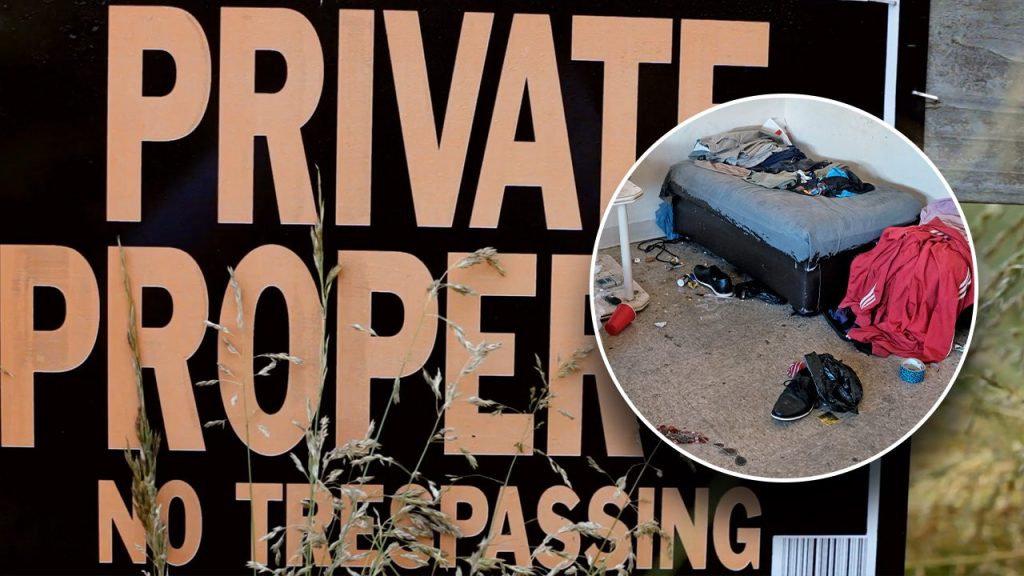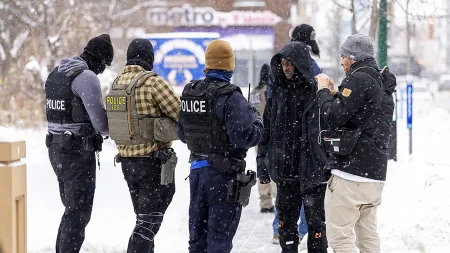The year 2024 has witnessed a disturbing surge in squatter-related incidents across the United States, leaving homeowners grappling with legal battles, financial burdens, and emotional distress. From coast to coast, individuals have brazenly occupied others’ properties, exploiting legal loopholes and challenging traditional notions of property rights. These incidents highlight the urgent need for legislative reform and stronger enforcement mechanisms to protect homeowners from this escalating threat.
One recurring theme in these cases is the protracted and often frustrating legal process homeowners face when attempting to reclaim their properties. In Queens, New York, Adele Andaloro endured a two-month ordeal after a squatter, Brian Rodriguez, forced his way back into her $1 million home. Exploiting New York’s tenant protection laws, Rodriguez claimed tenancy, leading to Andaloro’s arrest for changing the locks. This case underscores the challenges faced by homeowners in jurisdictions where legal procedures inadvertently shield squatters, leaving property owners vulnerable to manipulation and prolonged displacement.
The tragic case of Nadia Vitel in Manhattan further illustrates the potential dangers associated with squatting. Vitel was allegedly murdered by a teen squatter couple who had taken up residence in her apartment. The subsequent arrest of the couple, who used Vitel’s credit cards for extravagant purchases, reveals a disturbing disregard for human life and property rights. This incident serves as a stark reminder of the potential for violence and criminal activity associated with squatting, emphasizing the need for swift and decisive legal action to protect vulnerable homeowners.
The issue of squatting is not confined to densely populated urban areas. Even in Wyoming, the least populous state, homeowners have fallen victim to this invasive practice. Realtor Ronna Boril encountered a group of squatters in her property after evicting a tenant. The squatters refused to leave, claiming they had a lease, but were unable to provide any documentation. Boril was forced to incur significant expenses to clean up the property after the squatters finally vacated. This incident spurred legislative action in Wyoming, highlighting the growing recognition of squatting as a national problem requiring comprehensive legal solutions.
The challenges homeowners face in evicting squatters are further exemplified by the experience of Yudith Matthews and Abram Mendez in San Antonio, Texas. After hiring a handyman who subsequently became a squatter, the couple endured a two-month legal battle to reclaim their home. They were made to feel like criminals by law enforcement, despite being the victims of the situation. The financial burden of legal fees and property damage added to their distress, highlighting the systemic issues that often favor squatters over homeowners.
The problem of squatting extends beyond traditional residential properties. In Florida, authorities have reported a surge in squatters occupying abandoned boats along the coast. This phenomenon poses both environmental and safety risks, as derelict vessels can leak fuel and human waste, potentially polluting waterways. The increasing prevalence of boat squatting underscores the resourcefulness of squatters and the need for proactive measures to address this evolving aspect of the problem. Law enforcement agencies face unique challenges in dealing with this issue, as removing squatters from vessels often requires navigating complex maritime laws and regulations.
These cases collectively demonstrate the diverse ways in which squatting impacts communities across the United States. The legal complexities, financial burdens, and potential safety risks associated with squatting necessitate a comprehensive approach to addressing this growing problem. Legislative reforms that streamline eviction processes, strengthen penalties for squatting, and provide greater legal protection for homeowners are crucial. Increased public awareness and community vigilance can also play a significant role in deterring squatting and protecting vulnerable property owners. Furthermore, addressing the root causes of homelessness, which can contribute to squatting, is essential for finding long-term solutions to this complex issue. The stories of these homeowners serve as a call to action for lawmakers, law enforcement, and communities to work together to protect property rights and ensure the safety and security of all citizens.









